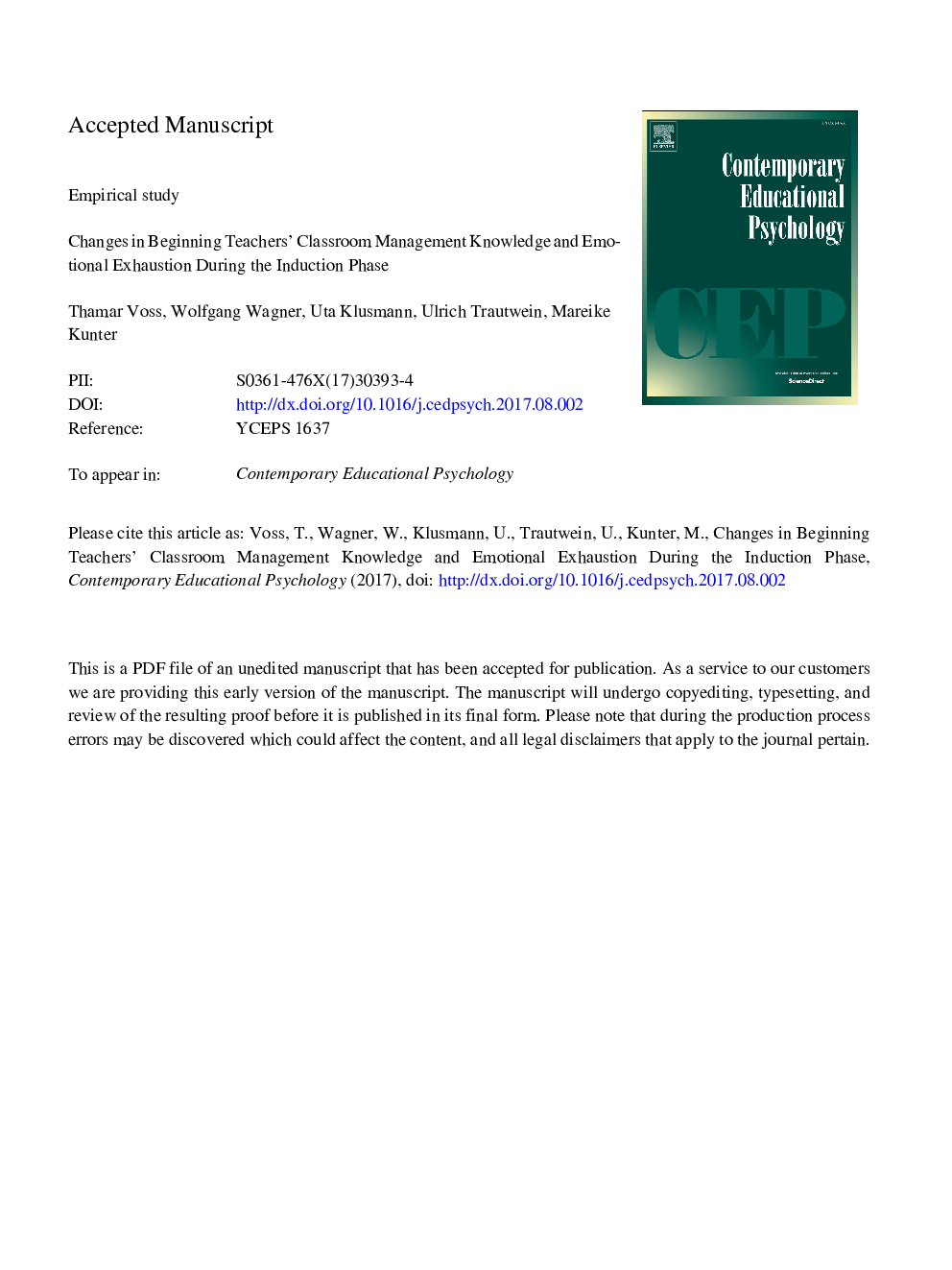| Article ID | Journal | Published Year | Pages | File Type |
|---|---|---|---|---|
| 4937853 | Contemporary Educational Psychology | 2017 | 66 Pages |
Abstract
The first years on the job are very challenging for teachers (e.g., Fives, Hamman, & Olivarez, 2007; Goddard, O'Brien, & Goddard, 2006). Two of the main challenges are to learn to regulate the highly complex classroom situations (Jones, 2006) and to regulate their own emotional resources (Chang, 2009). Accordingly, in the present study, we investigated changes in teacher candidates' classroom management knowledge as well as emotional exhaustion at the beginning of their teaching careers. We applied latent change models to a sample of 746 teacher candidates who were assessed twice during the German induction phase (the Referendariat). We found evidence for a significant increase in teacher candidates' classroom management knowledge during the induction phase. Emotional exhaustion increased during the first year and decreased during the second year of the induction phase. We also investigated between-person differences in the changes. Classroom management knowledge was predicted by the teacher candidates' cognitive personal characteristics (e.g., cognitive abilities and willingness to reflect), whereas emotional exhaustion was predicted by noncognitive personal characteristics (e.g., emotional stability) as well as variables related to the induction phase (e.g., perceived mentoring quality and teaching load). Classroom management knowledge and emotional exhaustion were only modestly associated.
Related Topics
Social Sciences and Humanities
Psychology
Applied Psychology
Authors
Thamar Voss, Wolfgang Wagner, Uta Klusmann, Ulrich Trautwein, Mareike Kunter,
